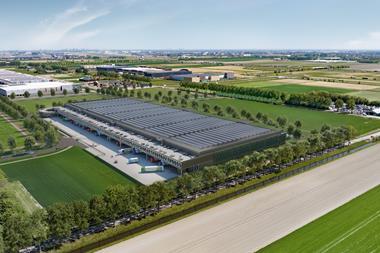EUROPE - The UK market is in a state of limbo as investors continue to shun all but prime assets, according to Cushman & Wakefield's monthly briefing.
Moribund market activity combined with an increase in yields by 3 basis points last month to compound longer-term problems such as lack of supply and occupier uncertainty created by the continuing euro-zone economic crisis.
Continental macroeconomic risk had provided an additional reason to delay investment decisions, the report said.
Although last month's yield increase was driven by retail, those on prime assets have remained relatively stable at an average of 5.8%.
In contrast, secondary yields have increased by more 100 basis points over the past year, as investors have not only demanded a higher risk premium but also, in most cases, shunned secondary assets.
David Hutchings, head of the European research group at C&W, told IP Real Estate the fact that secondary markets had not recovered reflected not only a rejection of risk but also their failure to re-price sufficiently to provide fair risk-adjusted returns for those investors ready to invest away from prime.
"This is in part a natural delay in the recovery of the market - which always favours the best first but spreads to second-tier assets as prices increase," he said.
He forecast that a more protracted and less comprehensive recovery than anticipated, which could result in some assets becoming "structurally obsolete" and incapable of offering a sustained income.
This would likely subdivide secondary into better and poorer-quality assets.
"There is very little sign that a risk appetite will return any time soon among institutional investors in the direct market," said Hutchings.
"Where institutions are ready to take more risk - typically insurance companies, rather than pension funds - they may choose to do so via a switch to debt rather than equity investment, or via private equity vehicles."
C&W thinks it unlikely the UK market will pick up sufficiently to generate overall momentum before the summer, although London remains "active and in robust health despite the turmoil elsewhere in Europe, or in fact perhaps because of it".
Retail in the Southeast has recently performed well compared with the regions, where supply largely outweighs tenant demand as store rationalisations continue to weaken rents.












